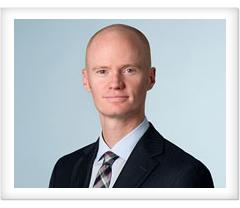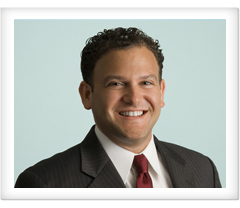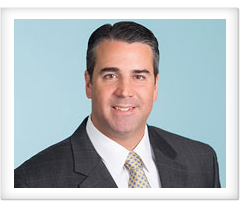|
Recent Trends & Developments in Employment, Labor & Benefits Law
Employment Matters Monthly
March 2015
Through our Employment Matters blog, attorneys from Mintz Levin’s Employment, Labor & Benefits Practice aim to share noteworthy information in matters relating to employers’ complex human resource and employment law issues and timely insights on legal developments. Here, we share blog posts and other content from February 2015. If you have any questions, please contact us or one of our team’s attorneys.
You can subscribe to our Employment Matters blog here.
 

Contents
 February 2015 Blog Posts February 2015 Blog Posts
 Workplace Challenges in 2015 Workplace Challenges in 2015
 Media Mentions Media Mentions
 What We're Reading What We're Reading
 Employment Quote(s) of the Week Employment Quote(s) of the Week
 Our Contributors Our Contributors

Written by Jessica Catlow
February 25th, 2015
Following a number of other localities, the City of Philadelphia has enacted the Promoting Healthy Families and Workplaces law requiring certain employers located in the city to provide employees with up to 40 hours of paid sick time in a calendar year. Here are the 15 things you should know about this law:
Continue Reading …
Written by Alden Bianchi
February 24th, 2015
In this volume, we have collected the 52 weekly blog posts that comprise the series entitled, The Affordable Care Act — Countdown to Compliance for Employers. The series appeared in the Mintz Levin Employment Matters Blog during 2014. Each of the posts addressed compliance issues affecting employers with a particular, though not exclusive, focus on that law’s employer shared responsibility (a/k/a “pay-or-play”) rules. The end of the series coincided with the January 1, 2015 “go live” effective date of the new rules. The issues discussed week-to-week were generally gleaned from newly-issued guidance or developing problems, questions or concerns. While not true in every case, many of the issues that we addressed remain of interest to employers and their advisors. As a consequence, we have assembled the entire series of posts into this single volume, which we hope you find useful.
Access the complete volume here.
Written by Jill Collins
February 23rd, 2015
These days most employers manage a vast amount of electronic information about their employees, including the employees’ personal identifying information. But, what obligations do employers have to unionized employees with respect to managing that information and bargaining with them in the event of a breach of their private information?
Continue Reading …
Written by Frank Hupfl
February 23rd, 2015
The Eleventh Circuit Court of Appeals recently issued an opinion holding that an employer cannot assert equitable defenses based on an employee’s misconduct in under-reporting hours as a total bar to the employee’s FLSA claim where the employer was aware of the employee’s conduct.
Continue Reading …
Written by Jessica Catlow
February 12th, 2015
Disruptive “technology” companies Uber and Lyft were back in court recently doing their best to ensure their business models are not upended by a ruling that their drivers should be classified as employees rather than independent contractors. On back to back January days, federal courts in California heard arguments from Uber, Lyft and their drivers as the respective parties all seek to convince the court to rule in their favor over the proper classification.
Continue Reading …
Written by Michael Arnold
February 11th, 2015
Please join us on February 25th at 1:00 p.m. ET for a webinar, the second in our 2015 Privacy & Security Webinar Series, which will focus on privacy in the workplace. Our workplace goes well beyond the office these days, which makes employment and privacy compliance even more challenging. Jen Rubin and Gauri Punjabi will discuss developments in the workplace privacy field, including statutory developments, mobile device regulation, social media’s impact on workplace privacy, recruiting and hiring, and some practical advice to keep your workplace policies in compliance with rapid legal developments.
We hope you can join us. Click here for the recording.
Written by Michael Arnold and Kevin M. McGinty
February 11th, 2015
The Second Circuit Court of Appeals has released its much-anticipated decision in Roach v. T.L Cannon Corp., addressing the Supreme Court’s Comcast Corp. v. Behrend decision in connection with a wage and hour class action lawsuit. Simply stated: the Second Circuit held that Comcast does not prevent class certification solely because plaintiffs cannot measure damages on a classwide basis. Generally, this means that wage and hour class action plaintiffs’ attorneys – indeed, all plaintiffs’ class action lawyers – can breathe a sigh of relief, as the Second Circuit’s decision substantially lessens their burden at the class certification stage.
Continue Reading …
Written by Michael Arnold
February 11th, 2015
I still consider Groundhog’s Day not only a great comedy, but also a great movie. Twenty-two years ago, the late Harold Ramis graced us with a tale about Phil Connors, a Pittsburgh TV weatherman, who finds himself repeating the same day over and over while on assignment covering Groundhog’s Day in Punxsutawney, Pennsylvania. (Spoiler alert) Connors, played by fan-favorite Bill Murray, escapes the time loop only after figuring out that the key to freedom lies with self-improvement and acts of kindness.
As the actual Groundhog’s Day neared this year, I thought about this movie and how sometimes I feel like I am in it when it comes to addressing certain employment law issues.
Continue Reading …
Written by George Patterson
February 9th, 2015
The Sixth Circuit recently held that a Michigan county agency was barred from arguing that its employee was ineligible for leave under the Family and Medical Leave Act (FMLA), because the employee relied on an inaccurate description of FMLA eligibility requirements contained in the agency’s personnel manual when he commenced the absence that led to his termination.
Continue Reading …
Written by David Barmak and Frank Hupfl
February 4th, 2015
The D.C. Council has passed emergency legislation to address certain ambiguities in and other issues raised by D.C.’s Wage Theft Prevention Amendment Act, which takes effect on February 26, 2015. As we noted last month, the Act’s language as previously written was unclear on whether exempt employees were subject to the Act’s heightened recordkeeping requirements. The emergency legislation directly addresses this ambiguity, and makes clear that employers are not required to record the “precise time worked” for exempt employees. In addition, the emergency resolution clarifies that employers are not required to pay “bona fide administrative, executive, and professional” employees at least twice per month, but rather must pay such employees at least once per month.
Continue Reading …
Written by Jen Rubin
February 4th, 2015
When it comes to California non-competes, you can never get enough clarity. And when that clarity comes from a Delaware Chancery Court, it adds a utility element that our corporate brethren appreciate.
Ascension Insurance Holdings, LLC v. Underwood involved a pretty straightforward scenario: a Delaware limited liability company purchased certain assets and goodwill from an insurance company partially owned by Robert Underwood – a California resident. Even though the LLC did business exclusively in California, the transaction documents called for the choice of Delaware law. Given that Delaware enforces choice of law clauses and California permits non-competes when someone sells their equity interests, game over, right?
Continue Reading …
Written by Michael Arnold and Gauri Punjabi
February 3rd, 2015
Employers do not have to pay their employees to attend mandatory alcohol counseling and treatment sessions, according to a New York Federal court. In reaching its decision, the court concluded that employee attendance at these sessions does not constitute “work”, and even if it did, then the employer still would not have to pay for this time because it would be considered a non-compensable postliminary activity. The decision is encouraging, especially because it will continue to incentivize employers to help employees successfully seek treatment before they opt to discipline or fire them.
Continue Reading …
Return to top

Recently, Mintz Levin held a seminar in New York City that addressed some of the major challenges employers are facing in the New Year. Our program contained segments on New York City’s paid sick leave law, effective management of HR Issues, the Affordable Care Act, employment practices liability insurance coverage, and workplace privacy. Over the next few weeks we will be posting a series of entries following up on the critical workplace issues raised during these segments.
Written by Michael Arnold
February 24th, 2015
Today’s topic: Continued Coverage Issues Under the Affordable Care Act.
Mintz Levin’s Alden Bianchi, and Jim Essey, Chief Executive Officer of the TemPositions Group of Companies, presented on a variety of issues that have arisen under the ACA’s pay-or-play rules and discussed some compliance strategies. One issue that came up concerned coverage of variable, contingent and temporary workers – usually employed through staffing companies, restaurants, retail, etc.
Continue Reading …
Written by Michael Arnold and Dan Long
February 19th, 2015
Today’s topic: Social Media Policies and the NLRB.
During our workplace privacy segment, our presenters, Mintz Levin attorneys Cynthia Larose and Richard Block, and Vice President, Deputy General Counsel of Time, Inc., Michelle Goldstein, addressed several issues that employers are grappling with as they settle into 2015, including employee notification issues raised in connection with a data breach, protecting employee data residing on cloud-based storage servers, privacy lawsuits resulting from wiping data from mobile devices; data breaches as an issue raised during collective bargaining (which we will address in a separate post) and the topic we are addressing in this post: social media policies and the NLRB.
Continue Reading …
Written by Michael Arnold
February 11th, 2015
First up: New York City’s paid sick leave law.
For this segment, we were fortunate enough to be joined by Julie Menin, the Commissioner of the NYC Department of Consumer Affairs, Marla Tepper, the Department’s General Counsel, and Jill Maxwell, an Agency Attorney in the Department’s Paid Sick Leave Division. Ms. Menin presented on the Department’s enforcement efforts, while Ms. Tepper and Ms. Maxwell later answered attendee questions. Here is a brief summary of our takeaways from their informative presentation.
Continue Reading …
Return to top

February 20, 2015
David Barmak was quoted in a Business Insurance article entitled Supreme Court May Dilute EEOC’s Aggressive Legal Strategy, in which he explains the Supreme Court’s heightened scrutiny of the EEOC’s claims against employers. The article focuses on recent judicial defeats of the EEOC and their potential implications for employers who seek to challenge the EEOC’s approach. Read the full article here.
February 10, 2015
Don Schroeder was quoted in a SHRM Online article entitled NLRB Charges Against McDonald’s Put Focus on HR, in which he comments on the NLRB’s decision to file complaints against McDonald’s USA and its franchisees due to their alleged retaliation against employees who participated in union and protected concerted activity. The article describes the aftermath of the Board’s decision and its potential impact on the definition of the joint employer doctrine. Read the full article here.
February 10, 2015
Jennifer Rubin was quoted in a Law360 article entitled Calif. Anti-Bullying Law to Add Fuel to Worker Litigation, in which she explains the implications of a new anti-bullying law in California that requires supervisors to complete anti-bullying training. The article emphasizes the contrasting perspectives on the law. Read the full article here.
February 10th, 2015
Mike Arnold was quoted in a SHRM Online article entitled Measles Outbreak Raises Compliance Questions, in which I respond to common HR questions employers may have in the wake of the measles outbreak. Read the full article here.
By Michael Arnold
February 5, 2015
If it can happen in the “Happiest Place on Earth,” then why can’t it happen at my office? That is a question many employers are asking themselves after a recent multi-state measles outbreak was linked to Disneyland in California.
Combined with the Ebola scare that saturated the 24-hour news cycle last fall and another nasty flu season in full swing, issues related to preventing the spread of infectious diseases in the workplace have started to gain increasing attention among HR departments across the nation. And in particular, with highly infectious diseases like measles and the flu, some employers are wondering whether employee-required vaccinations are the answer.
But whether you can require your employees to be vaccinated and whether you should are two different questions. In this article for bizjournals.com, I briefly explore both these questions. Read the rest of the article here.
Return to top

Payroll ‘leap year’ will boost coffers for workers, by Beth Pinkser (Reuters, Jan. 8, 2015
How to Tell if You’re a Jerk at Work, by Daniel R. Ames and Abbie S. Wazlawek (Wall Street Journal, Feb. 22, 2015)
Everything Is Awesome! Why You Can’t Tell Employees They’re Doing a Bad Job, by Rachel Feintzeig (Wall Street Journal, Feb. 10, 2015)
Recruiting, Hiring, Retaining, and Promoting People with Disabilities – A Resource Guide for Employers (Curb Cuts to the Middle Class Initiative, Feb. 3, 2015)No. 13-2901 (7th Cir. Jan. 12, 2015) (J., Williams)
Workplace Harassment Still a Major Problem Experts Tell EEOC at Meeting, EEOC Press Release (Jan. 14, 2015)
Return to top

“[I]t troubles me that the [EEOC] continues to proffer expert testimony from a witness whose work has been roundly rejected in our sister circuits for similar deficiencies to those we observe here. It is my hope that the agency will reconsider pursuing a course that does not serve it or the public interest well.”
Circuit Judge Agee in a concurring opinion in EEOC v. Freeman, No. 13-2365 (4th Cir. Feb. 20, 2015) (affirming a district court decision that excluded expert testimony proffered by the EEOC to establish the alleged disparate impact of the employer’s background check policies).
“We’re looking very actively at [the predictable scheduling] issue now. It’s popping up on our radar screen…. It does raise big work life balance issues[,] and [i]t’s an open question [as to whether the FLSA covers it].”
Wage and Hour Administrator David Weil in an interview with Bloomberg BNA as highlighted in the article “WHD Prepares to Issue White-Collar Rule, Deal With Scuttling of Home Care Rule,” by Gayle Cinquegrani (BNA Daily Labor Report, Special Report, Jan. 26, 2015) (subscription required).
“Among the charges the EEOC received, the percentage of charges alleging retaliation reached its highest amount ever: 42.8 percent.”
February 4, 2015 EEOC Press Release in summarizing its Fiscal Year 2014 Enforcement and Litigation Data.
“We interpret collective-bargaining agreements, includ¬ing those establishing ERISA plans, according to ordinary principles of contract law, at least when those principles are not inconsistent with federal labor policy.
Justice Thomas, in a unanimous opinion in M&G Polymers USA, LLC v. Tackett, No. 13-1010 (Jan. 26, 2015) (finding that retirees did not have a right to lifetime contributions to the cost of their health care benefits because the applicable CBA providing for the contributions expired and under ERISA, employers are free at any time and for any reason to adopt, modify or terminate welfare plans).
Return to top

Learn more about Employment Matters blog and its contributors here.
|



















